
Blood and Lymphatic Cancer-Targets and Therapy
Scope & Guideline
Transforming Cancer Treatment Through Open Access
Introduction
Aims and Scopes
- Hematological Cancer Research:
The journal primarily publishes research related to various types of blood cancers, including leukemia, lymphoma, and multiple myeloma, highlighting both basic and clinical research. - Therapeutic Strategies and Innovations:
A significant focus is placed on novel therapeutic approaches, including targeted therapies, immunotherapies, and precision medicine, aiming to improve patient outcomes in blood malignancies. - Prognostic and Diagnostic Advances:
The journal emphasizes the development of prognostic models and diagnostic techniques, integrating genomic, transcriptomic, and clinical data to enhance treatment decision-making. - Clinical Management and Guidelines:
It also encompasses articles discussing clinical management strategies, including treatment protocols, patient management approaches, and the impact of comorbidities on treatment outcomes. - Multidisciplinary Approaches:
The journal encourages research that reflects interdisciplinary collaboration, incorporating insights from oncology, hematology, immunology, and genetics to advance the understanding and treatment of blood cancers.
Trending and Emerging
- Targeted and Precision Therapies:
There is a significant increase in publications focused on targeted therapies, including BTK inhibitors, PI3K inhibitors, and CAR T-cell therapies, showcasing a shift towards precision medicine tailored to individual patient profiles. - Prognostic Models Utilizing Genomic Data:
Recent studies have emphasized the development of prognostic models based on genomic and transcriptomic data, reflecting a trend towards personalized treatment approaches and improved patient stratification. - Interventional Strategies for Refractory Cases:
Emerging themes include innovative interventional strategies for managing refractory blood cancers, indicating a growing interest in addressing complex clinical challenges and improving treatment outcomes. - Management of Comorbidities in Cancer Patients:
There is an increasing focus on understanding and managing comorbidities, such as renal impairment in multiple myeloma patients, highlighting the need for comprehensive care in oncology. - Integration of Immunotherapy in Treatment Protocols:
The integration of immunotherapy, particularly in lymphomas and leukemias, is gaining traction, with more publications exploring the efficacy and safety of these novel approaches in clinical settings.
Declining or Waning
- Traditional Chemotherapy Approaches:
There is a noticeable decrease in publications focused solely on traditional chemotherapy regimens, as the field increasingly shifts towards targeted therapies and personalized medicine. - General Reviews without Novel Insights:
The frequency of general review articles that do not provide novel insights or advancements has diminished, indicating a preference for more focused, data-driven studies that contribute to specific areas of research. - Basic Science Studies:
Research articles centered on basic science without clear clinical applications or therapeutic implications are becoming less common, as the journal aligns more with translational research that bridges laboratory findings and clinical practice. - Epidemiological Studies:
Epidemiological studies, while still relevant, are appearing less frequently, possibly due to the journal's growing emphasis on innovative treatment strategies and prognostic models.
Similar Journals
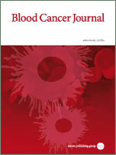
Blood Cancer Journal
Empowering discovery through open-access scholarship.Blood Cancer Journal, published by SPRINGERNATURE, is a leading open-access journal that has been at the forefront of hematology and oncology research since its inception in 2011. With an impressive impact factor and a commitment to disseminating high-quality research, it holds a prestigious Q1 ranking in both hematology and oncology categories as of 2023. The journal is dedicated to publishing innovative studies, comprehensive reviews, and insightful commentaries that advance our understanding of blood cancers, making it an essential resource for researchers, healthcare professionals, and students in the field. Its open-access model ensures that groundbreaking research is accessible to a global audience, promoting collaborative efforts to enhance treatment methodologies and patient outcomes. With a strong reputation illustrated by its Scopus rankings—8th in hematology and 30th in oncology—Blood Cancer Journal exemplifies excellence and leadership in the ever-evolving landscape of cancer research.
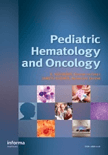
PEDIATRIC HEMATOLOGY AND ONCOLOGY
Exploring breakthroughs in child hematology and oncology.Pediatric Hematology and Oncology, published by Taylor & Francis Inc, serves as a vital platform dedicated to the fields of hematology, oncology, and pediatrics, providing a comprehensive avenue for the dissemination of scholarly research and clinical advancements. With an ISSN of 0888-0018 and an E-ISSN of 1521-0669, this journal has successfully converged its expertise over the years from 1984 to 2024. Ranked in the Q3 category for Hematology and Oncology, alongside a Q2 ranking in Pediatrics, Perinatology, and Child Health (2023), it engages a diverse readership comprising researchers, healthcare professionals, and students eager to explore groundbreaking studies in child health and treatment methodologies. While it currently does not offer Open Access options, the journal is widely cited and recognized, particularly in its specialized fields, fostering a rich environment for dialogue and innovation in the management of pediatric hematological and oncological disorders. The journal is based in the United Kingdom at 530 Walnut Street, Ste 850, Philadelphia, PA 19106, making it an essential resource for those pursuing excellence in pediatric medical research.
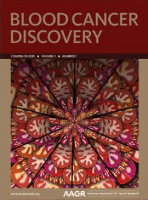
Blood Cancer Discovery
Illuminating the Path to Understanding Blood MalignanciesBlood Cancer Discovery is a premier academic journal published by the American Association for Cancer Research, dedicated to advancing the understanding of hematologic malignancies through cutting-edge research in the fields of oncology, biochemistry, and molecular biology. With an impressive impact factor and recognition as a Q1 journal across multiple disciplines, including cancer research and hematology, Blood Cancer Discovery serves as an essential platform for scholars and practitioners alike, facilitating impactful discourse and dissemination of pioneering findings. This open-access journal, established within the vibrant academic landscape of the United States, aims to bridge gaps in research and foster collaborations to ultimately enhance patient outcomes. Its Scopus rankings demonstrate its vital role in the critical advancement of cancer research and therapeutic development. By inviting contributions from a diverse range of disciplines, Blood Cancer Discovery is poised to drive innovation and inspire future advancements in understanding blood cancers.

INTERNATIONAL JOURNAL OF HEMATOLOGY
Fostering Global Insights in Blood ResearchThe INTERNATIONAL JOURNAL OF HEMATOLOGY, published by SPRINGER JAPAN KK, serves as a critical platform for advancing research in the field of hematology. With a prestigious history spanning over three decades from 1991 to 2024, this journal is recognized for its impactful contributions, evidenced by its Q2 category ranking in Hematology for 2023, and its notable position at rank #71 out of 137 in the Scopus Medicine Hematology category. Researchers and professionals within the hematology community benefit from the journal's rigorous peer-reviewed articles that cover a wide range of topics, including clinical studies, basic research, and novel therapeutic strategies. Though currently non-open access, it provides essential insights and findings to an audience passionate about the latest advancements in blood disorders and treatments. Situated in Japan, the journal not only showcases high-quality research but also fosters a global exchange of knowledge in hematology, making it a significant resource for scholars, practitioners, and students alike.
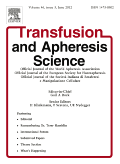
TRANSFUSION AND APHERESIS SCIENCE
Innovating Patient Care Through Apheresis and Transfusion InsightsTRANSFUSION AND APHERESIS SCIENCE, published by Pergamon-Elsevier Science Ltd, serves as a pivotal platform for researchers and practitioners in the fields of hematology, transfusion medicine, and apheresis. With an ISSN of 1473-0502 and an E-ISSN of 1878-1683, this peer-reviewed journal boasts a respectable Q3 ranking in the Hematology category as of 2023, positioning it within the 45th percentile among its counterparts. Operating from the United Kingdom, it provides comprehensive insights into the latest advancements and methodologies in transfusion practices and apheresis technology, crucial for enhancing patient care and therapeutic strategies. The journal's scope, covering key developments from 1996 to 2024, allows for a deep exploration of historical and emerging trends within the discipline. Moreover, its open access options facilitate widespread dissemination of research findings, fostering collaboration and innovation in the scientific community. For those dedicated to advancing knowledge in hematology, TRANSFUSION AND APHERESIS SCIENCE represents an essential resource, bridging theory and practice in this vital area of healthcare.
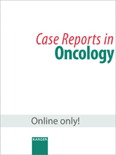
Case Reports in Oncology
Sharing Unique Clinical ExperiencesCase Reports in Oncology is a peer-reviewed journal published by KARGER, dedicated to the dissemination of high-quality case studies and clinical reports in the field of oncology. Since its transition to Open Access in 2008, this Swiss-based journal has aimed to broaden the accessibility of key findings to a global audience of researchers, healthcare professionals, and students. The journal is positioned in the Q3 quartile for oncology, indicating its valuable contribution to the field, while also holding a Scopus rank of 294 out of 404 in Medicine, with a percentile of 27%. However, its open access model ensures that even those outside of traditional academic institutions can engage with critical advancements and novel insights from the oncology community. With a publication span extending from 2010 to 2024, Case Reports in Oncology serves as a crucial platform for sharing unique clinical experiences and innovative treatment strategies, ultimately enriching the practice and study of oncology.

Journal of Hematology
Bridging Knowledge Gaps in HematologyThe Journal of Hematology, published by ELMER PRESS INC, serves as a pivotal platform for disseminating cutting-edge research in the field of hematology. With an ISSN of 1927-1212 and an E-ISSN of 1927-1220, this journal is committed to advancing scientific knowledge and clinical practice through high-quality peer-reviewed articles encompassing all aspects of blood disorders, from basic science to health policy implications. While the journal currently operates under a traditional access model, it nonetheless prioritizes the rapid publication of significant findings, ensuring that researchers, clinicians, and students have timely access to the latest advancements in hematological research. Positioned to bridge gaps in knowledge and foster collaboration among scholars worldwide, the Journal of Hematology is an essential resource for anyone invested in this vital area of medicine.
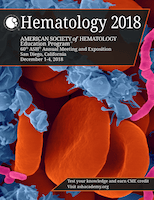
Hematology-American Society of Hematology Education Program
Empowering Knowledge in Blood DisordersHematology-American Society of Hematology Education Program is a premier peer-reviewed journal dedicated to advancing the field of hematology through comprehensive educational content. Published by the American Society of Hematology, this journal plays a crucial role in disseminating knowledge to researchers, clinicians, and students in hematology and related disciplines. With an impressive Q1 status in the field, it ranks among the top journals at the forefront of hematological research, as evidenced by its 60th percentile ranking in Scopus' Medicine - Hematology category. Although it does not offer open access, the journal provides invaluable insights and educational resources from leading experts, focusing on the latest advancements, treatment protocols, and evolving understanding of blood disorders. Covering a wide range of topics, from basic research to clinical applications, this journal is essential for anyone seeking to deepen their expertise and stay informed on the latest developments in hematology. For further engagement, readers can access insightful articles published since 2001, ensuring a rich repository of knowledge for ongoing research and clinical excellence.

Journal of Blood Medicine
Empowering Research: Your Gateway to Innovations in HematologyThe Journal of Blood Medicine, published by DOVE MEDICAL PRESS LTD, stands as a vital resource in the field of hematology, focusing on the latest research developments and clinical advancements in blood medicine. With an impact factor reflective of its growing relevance, this open-access journal has been delivering quality scholarly work since 2010, ensuring that critical research is readily available to the global scientific community. The journal operates under an open-access model, further enhancing its dissemination and accessibility to researchers, professionals, and students alike. In the 2023 rankings, it secured a Q3 category status within hematology and achieved a commendable 76th rank out of 137 in Scopus listings, indicating its commitment to quality and innovation in this specialized area. Located in New Zealand, the journal's diverse topics encompass clinical research, treatment modalities, and emerging therapies, contributing significant insights vital for shaping future advancements in blood medicine.

HemaSphere
Fostering global collaboration in hematologic studies.HemaSphere, published by WILEY, stands at the forefront of hematology research, offering a vital platform for the dissemination of cutting-edge findings in the field. Since its inception in 2017 and official transition to Open Access in 2018, the journal has positioned itself as a leading conduit for high-impact research, maintaining a prestigious Q1 quartile ranking in the Hematology category as of 2023. Addressed in the United States at 111 River St, Hoboken, NJ, HemaSphere aims to foster a global dialogue among researchers, clinicians, and students by providing unrestricted access to high-quality content that encompasses clinical and experimental advancements. With an array of engaging articles, reviews, and commentaries, HemaSphere contributes significantly to the advancement of hematology, ensuring that critical knowledge is readily accessible to enhance patient care and innovative research. To explore the latest developments and breakthroughs in this dynamic field, we invite scholars, professionals, and students to engage with HemaSphere and elevate their understanding of hematologic science.